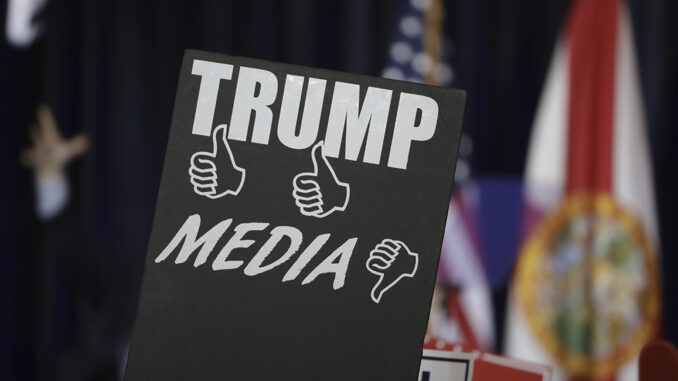
On his first day back in office last month and two weeks after he expressed a desire to do so, President Donald Trump renamed the Gulf of Mexico via executive order.
The order stated in part that “in recognition of this flourishing economic resource and its critical importance to our Nation’s economy and its people, I am directing that it officially be renamed the Gulf of America.”
While many news outlets adjusted their terminology accordingly, The Associated Press was not among them. In a written explainer, they said it was because “the Gulf of Mexico has carried that name for more than 400 years.” Further, because the news organization has an international audience, they thought it would be less confusing to readers to keep it as it was.
This has resulted in the Trump White House blocking their access to the Oval Office and Air Force One indefinitely while retaining their access to the White House grounds.
“While their right to irresponsible and dishonest reporting is protected by the First Amendment, it does not ensure their privilege of unfettered access to limited spaces, like the Oval Office and Air Force One,” White House Deputy Chief of Staff Taylor Budowich said in a statement earlier this month.
In response, the AP first tried to resolve the issue through back channels, which included a letter signed by multiple outlets demanding their full access be restored. Because those attempts haven’t worked, they have filed a lawsuit in order to “defend our independence from government control in what we can say and report.”
In true dramatic AP fashion, they further explained their decision to sue by claiming they were also doing it “on behalf of all independent global media organizations and people who have the freedom of speech.”
While some would dispute the claim that the AP’s freedom of speech has been infringed simply because they’ve been restricted from the Oval Office and Air Force One, what shouldn’t be in dispute is that the media outlet has become a mouthpiece for leftist causes.
In a more detailed explanation of the White House’s stance last week, Budowich told Axios, “This isn’t just about the Gulf of America.”
“This is about AP weaponizing language through their stylebook to push a partisan worldview in contrast with the traditional and deeply held beliefs of many Americans and many people around the world,” he also noted.
For instance, The Associated Press discouraged reporters from using the word “riots” to describe the rioting that took place in the summer of 2020 after the officer-involved death of Minneapolis resident George Floyd. The rationale they gave for the change was, in part, because in their view, there was a “stigma” attached to the word.
A decade ago, they stopped referring to illegal immigrants as illegal immigrants.
“The Stylebook no longer sanctions the term ‘illegal immigrant’ or the use of ‘illegal’ to describe a person. Instead, it tells users that ‘illegal’ should describe only an action, such as living in or immigrating to a country illegally,” they wrote at the time in keeping with the leftist viewpoint that no person is “illegal.”
While the AP may ultimately be successful in forcing a change back to the status quo, at least as far as press access goes, Trump and his team will continue to shine an unflattering spotlight on a big problem with them over the fact that they really aren’t neutral observers and recounters of current (and past) events and haven’t been for quite some time.
North Carolina native Stacey Matthews has also written under the pseudonym Sister Toldjah and is a media analyst and regular contributor to RedState and Legal Insurrection.



